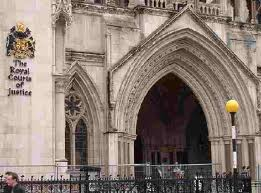
Nominal value for stripped-out offices
The Upper Tribunal (Lands Chamber) has determined that offices at Canary Wharf which had been stripped out were incapable of beneficial occupation, and should therefore have a nominal rateable value, following the decision of the Supreme Court in SJ & J Monk v Newbigin (Rating Surveyors Association and another intervening) [2017]. This decision will, we hope, finally resolve the approach to be adopted when valuing for rating properties undergoing redevelopment or refurbishment. ...Read More

Supreme Court rules on value of vacant offices
The UK Supreme Court has allowed, in a majority judgment, an appeal by the Valuation Officer against a decision of the Court of Appeal that the rateable value of a large, vacant, office block in Blackpool should be a nominal figure of £1. The three-two majority judgment of the Supreme Court is that the valuation for the building of rateable value £370,000, determined by the Upper Tribunal (Lands Chamber), should be reinstated. ...Read More








